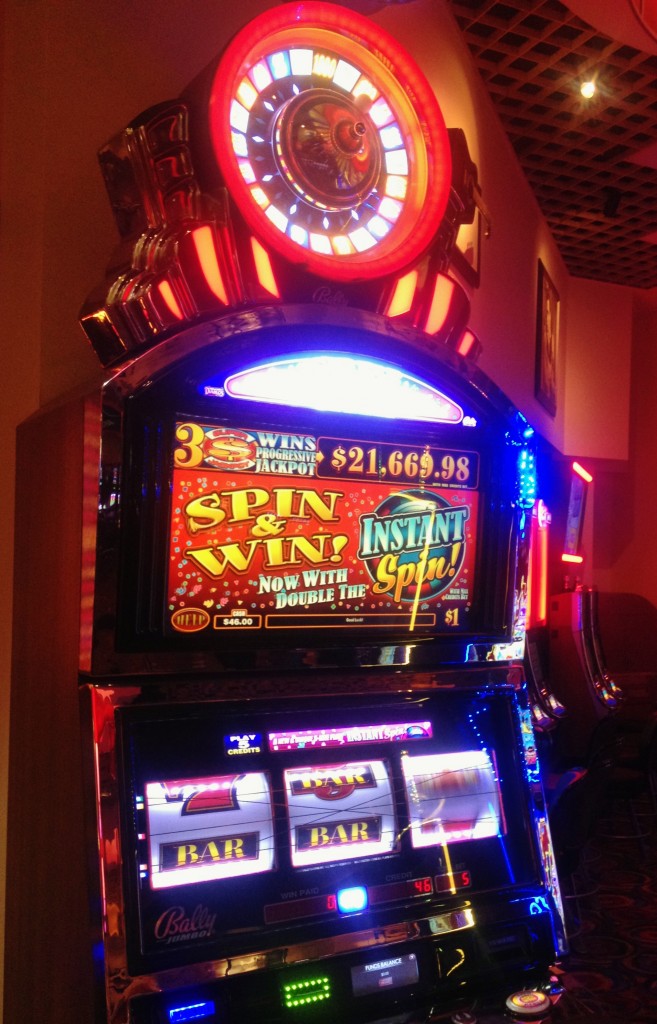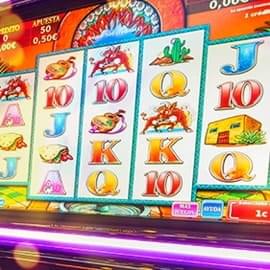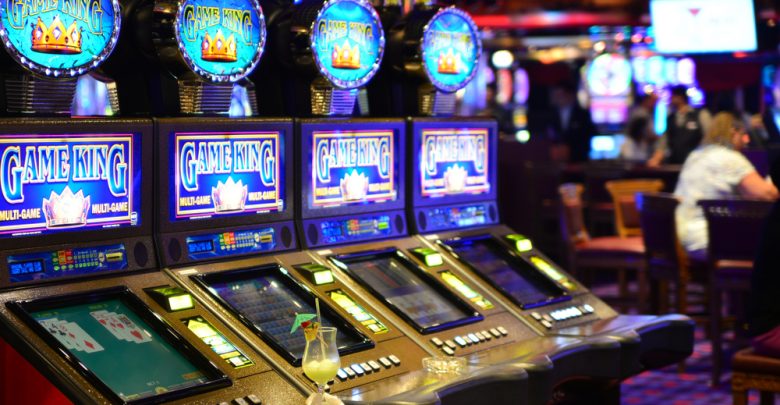How Are Slot Machine Payouts Determined
Believe it or not, the payouts on slot machines weren’t always in the form of money, but instead, some of the first ones rewarded people with bubble gum as well as other kinds of merchandise. Slots are ever-increasing and you can literally find them located at every casino location you go to. RNG determines when it hits and how often it does. Sometime the amount put in the connected slot machines will pile up and at some point reaching a certain goal will hit.
Introduction to Taxable Jackpots
One of the most popular slot machine questions on Google searches is: How do slot machines pay out taxable jackpots? I’ve assumed this question is about the mechanics of the payout process. A different upcoming post deals with explaining when slot machines pay out.
Slot machines are special-purpose computers, like a lot of equipment found in our lives. Specifically, standard tools are televisions, electronic watches, gas station pumps, cash registers, bank ATMs, automobiles, baby monitors, and the list goes on and on.
Each of these devices has one or more computer microprocessors, visual display, audio speaker, and some may also have a way to accept and/or dispense money either physically or virtually online.
Beyond controlling the multiple interfaces to and from the player, the computer within a slot machine also manages the odds of a player winning.
At its core, a pseudo-random number generator (PRNG) is a calculation. This PRNG is an element of the computer programming algorithm used by slot machines.
PRNGs (or more commonly RNGs) determine the outcome of a player’s bet based on the pre-determined odds of winning as set by the casino operator within the limited options provided by the slot machine manufacturer.
As previously mentioned elsewhere, winning a jackpot involves using the PRNG twice:
- To determine if a jackpot is won
- To determine how much was won
Keep Reading … or Watch Instead!
Or … Listen Instead!
Subscribe to my Professor Slots podcast at Apple Podcasts Google Podcasts Spotify Amazon Music Amazon Audible Gaana Stitcher Pandora iHeart Radio Tune-In SoundCloud RadioPublic Deezer RSS and everywhere else you find your podcasts!
The Slot Machine Gambling Process
Once a player selects a specific slot machine, that machine operates to accept or reject the inserted cash, ticket voucher, and reward card.
Next, it accepts the player’s selection for denomination amount and amount of credits to be bet, although it will merely reject one or both settings if insufficient funds are available to make such a bet.
When the bet is placed, the machine immediately selects the latest random number generated by its RNG to determine the outcome of the bet and well as updating the players club card with the points earned for placing the bet.
At the end of this process, the machine turns the reels to show the outcome of the bet. See below for this player-machine sequence of events.
During slot machine gambling, a sequence of actions and reactions take place between the player and machine. The player:
- selects a specific machine, inserts money in the form of cash or ticket voucher
- chooses from the denominations available
- chooses the number of credits to bet
- places a bet
- observes the results of the bet including any bonus round
- receives winnings from the bet (if any)
- then, either:
- leaves the machine empty handed
- cashes out any remaining funds and leaves with a ticket voucher
- continues playing the machine.
The player may choose to insert a player card at any time before or during play, then later remove it before leaving the machine.
Jackpot!
Between determining the outcome of the bet and turning the reels, the machine executes programming code that sets the reels.
The reels turn in a way the machine’s game designers consider most entertaining to the player – such as stopping on reel symbols for non-wins which are next to the symbols for sizable jackpots.
As mentioned, the bet’s outcome is determined when the bet is placed, not when the reels stop moving, despite the entertainment value derived by the player when observing the “action” of the slot machine.
In the event of a win, the machine executes further programming to activate sequences of lights and sounds while updating the information display for the player, which is referred to as a roll-up.

Now What? – The Jackpot Pay Out Process

If a jackpot less than the taxable limit is won, slot players can simply proceed with continuing to play or cash out from that slot machine. The current taxable jackpot limit is $1,200 in the United States.
Meaning, if you have a win of $1,200.00 or more at a slot machine, there is an immediate tax bill resulting in an IRS Form W-2G. If you have a win of $1,199.99 or less, there is no immediate tax bill.
Jackpots that require immediate payment of taxes results in the slot machine locking up.
Many, many slot players have been surprised by their slot machine locking up when a taxable jackpot is won. It can only be unlocked by a casino employee, a slot attendant.
Whether a casino is old or new, a slot attendant will arrive shortly to administer a hand payout. During a hand payout, a slot attendant
- collects personal identification sufficient to both complete a tax form as well as any other state-required documentation
- performs the hand payout (if they have adequate cash on hand)
- unlocks the machine to allow the player to continue.
If the attendant is not carrying enough cash with them, or if the player wishes to have a cashier’s check instead of a cash payout, the slot attendant leaves the player with a receipt and returns a short while later with the check or cash.
If the attendant leaves, they typically unlock the slot machine beforehand to allow the player to continue betting while waiting for the slot attendant to return.
Summary of Taxable Jackpots
The most important thing to remember about winning a jackpot is to make sure you’ve brought your government-issued I.D. If you don’t have it, then you cannot receive a taxable jackpot.
And, no, your friend sitting next to you cannot claim the jackpot for you – the eye in the sky knows it’s your winnings and not someone else.
The second thing to be aware of is what is or is not a taxable jackpot, a single win of $1,200 or higher. Many people have never won a taxable jackpot, so it can be challenging to get useful information on this unless you’ve done it more than a few times. But I have.
If the machine locks up, it’s either had an error or you’ve won a taxable jackpot. Being out of paper is a machine error, for example. Either way, a slot attendant will show up shortly to help. For goodness sake, don’t walk away until you know which!
As a final note, as of this writing, a decade ago, casinos moved away from using coins. Nowadays, they use cash, checks, and vouchers redeemable at cash machines and cages.
Related Articles from Professor Slots
Other Articles from Professor Slots
- Previous: Why Do Slot Machines Use Fruit Reel Symbols?
- Next: Who Builds Slot Machines Throughout the World?
Have fun, be safe, and make good choices!
By Jon H. Friedl, Jr. Ph.D., President
Jon Friedl, LLC
The gaming industry is big business in the U.S., contributing an estimated US$240 billion to the economy each year, while generating $38 billion in tax revenues and supporting 17 million jobs.
What people may not realize is that slot machines, video poker machines and other electronic gaming devices make up the bulk of all that economic activity. At casinos in Iowa and South Dakota, for example, such devices have contributed up to 89 percent of annual gaming revenue.
Spinning-reel slots in particular are profit juggernauts for most casinos, outperforming table games like blackjack, video poker machines and other forms of gambling.
What about slot machines makes them such reliable money makers? In part, it has something to do with casinos’ ability to hide their true price from even the savviest of gamblers.
The price of a slot
An important economic theory holds that when the price of something goes up, demand for it tends to fall.
But that depends on price transparency, which exists for most of the day-to-day purchases we make. That is, other than visits to the doctor’s office and possibly the auto mechanic, we know the price of most products and services before we decide to pay for them.
Slots may be even worse than the doctor’s office, in that most of us will never know the true price of our wagers. Which means the law of supply and demand breaks down.
Casino operators usually think of price in terms of what is known as the average or expected house advantage on each bet placed by players. Basically, it’s the long-term edge that is built into the game. For an individual player, his or her limited interaction with the game will result in a “price” that looks a lot different.
For example, consider a game with a 10 percent house advantage – which is fairly typical. This means that over the long run, the game will return 10 percent of all wagers it accepts to the casino that owns it. So if it accepts $1 million in wagers over 2 million spins, it would be expected to pay out $900,000, resulting in a casino gain of $100,000. Thus from the management’s perspective, the “price” it charges is the 10 percent it expects to collect from gamblers over time.
Individual players, however, will likely define price as the cost of the spin. For example, if a player bets $1, spins the reels and receives no payout, that’ll be the price – not 10 cents.
So who is correct? Both, in a way. While the game has certainly collected $1 from the player, management knows that eventually 90 cents of that will be dispensed to other players.
A player could never know this, however, given he will only be playing for an hour or two, during which he may hope a large payout will make up for his many losses and then some. And at this rate of play it could take years of playing a single slot machine for the casino’s long-term advantage to become evident.
Short-term vs. long-term
This difference in price perspective is rooted in the gap between the short-term view of the players and the long-term view of management. This is one of the lessons I’ve learned in my more than three decades in the gambling industry analyzing the performance of casino games and as a researcher studying them.

Let’s consider George, who just got his paycheck and heads to the casino with $80 to spend over an hour on a Tuesday night. There are basically three outcomes: He loses everything, hits a considerable jackpot and wins big, or makes or loses a little but manages to walk away before the odds turn decidedly against him.
Of course, the first outcome is far more common than the other two – it has to be for the casino to maintain its house advantage. The funds to pay big jackpots come from frequent losers (who get wiped out). Without all these losers, there can be no big winners – which is why so many people play in the first place.
Specifically, the sum of all the individual losses is used to fund the big jackpots. Therefore, to provide enticing jackpots, many players must lose all of their Tuesday night bankroll.
What is less obvious to many is that the long-term experience rarely occurs at the player level. That is, players rarely lose their $80 in a uniform manner (that is, a rate of 10 percent per spin). If this were the typical slot experience, it would be predictably disappointing. But it would make it very easy for a player to identify the price he’s paying.
Raising the price
Ultimately, the casino is selling excitement, which is comprised of hope and variance. Even though a slot may have a modest house advantage from management’s perspective, such as 4 percent, it can and often does win all of George’s Tuesday night bankroll in short order.
This is primarily due to the variance in the slot machine’s pay table – which lists all the winning symbol combinations and the number of credits awarded for each one. While the pay table is visible to the player, the probability of producing each winning symbol combination remains hidden. Of course, these probabilities are a critical determinant of the house advantage – that is, the long-term price of the wager.
This rare ability to hide the price of a good or service offers an opportunity for casino management to raise the price without notifying the players – if they can get away with it.
Casino managers are under tremendous pressure to maximize their all-important slot revenue, but they do not want to kill the golden goose by raising the “price” too much. If players are able to detect these concealed price increases simply by playing the games, then they may choose to play at another casino.
This terrifies casino operators, as it is difficult and expensive to recover from perceptions of a high-priced slot product.
Getting away with it
Consequently, many operators resist increasing the house advantages of their slot machines, believing that players can detect these price shocks.
Our new research, however, has found that increases in the casino advantage have produced significant gains in revenue with no signs of detection even by savvy players. In multiple comparisons of two otherwise identical reel games, the high-priced games produced significantly greater revenue for the casino. These findings were confirmed in a second study.
Further analysis revealed no evidence of play migration from the high-priced games, despite the fact their low-priced counterparts were located a mere 3 feet away.

Importantly, these results occurred in spite of the egregious economic disincentive to play the high-priced games. That is, the visible pay tables were identical on both the high- and low-priced games, within each of the two-game pairings. The only difference was the concealed probabilities of each payout.
How Are Slot Machine Payouts Determined Jackpot
Armed with this knowledge, management may be more willing to increase prices. And for price-sensitive gamblers, reel slot machines may become something to avoid.